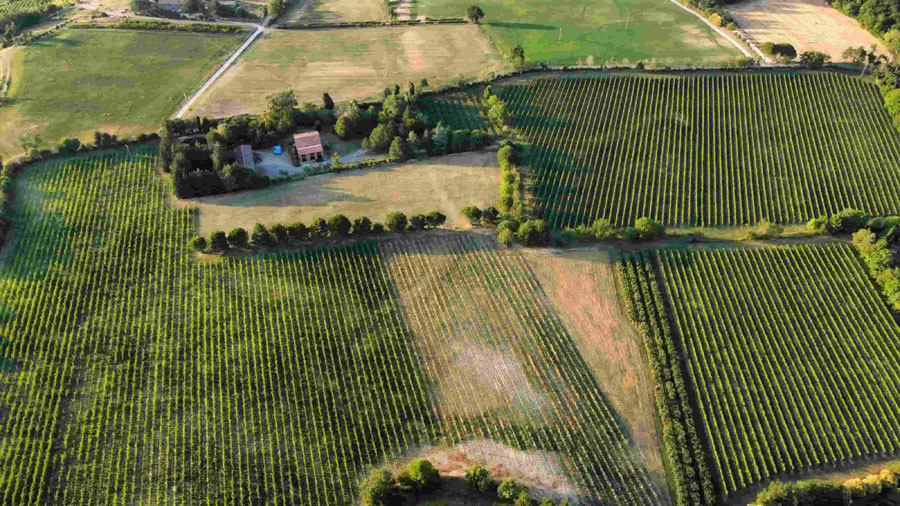The European certification model on the sustainability of the wine supply chain expands its scope and conquers the monopolies of Northern Europe. Spain and Sweden lead the way in internationalisation.
Equalitas continues its journey to lead sustainable change in the wine sector with the approval of new protocols, ever-increasing guarantees of transparency and a growing number of certified companies. There are 14,500 brand labels for a total of 8.8 million hectoliters of certified wine (compared to 6.9 in 2022), which translates into a growth of 139% in just three years. In fact, since 2017, the year of its foundation, the Equalitas system has reached 435 certified operating units for 306 company names and a total turnover of approximately 6 billion euros .
Among the Italian regions , Veneto is at the top with 120 operating units , followed by Piedmont with 91 and Tuscany with 73 , high concentrations are also recorded in the center and in the south, in particular in Abruzzo (34), Puglia (22), Sicily and Marche (17). A record increase that confirms the Equalitas certification as one of the main reference standards for sustainable wine, not only in Italy but also abroad.
Internationalization represents another important strategic asset: international membership is growing with 8 certified companies in Spain and 2 in Sweden, alongside more and more formal requests from the big wine giants such as France and Germany, but also from emerging countries in the sector such as Romania, Bulgaria, Greece, Belgium, South Africa, Brazil, Finland and Denmark. A key role in foreign diffusion is linked to the activity of the Nordic monopolies, increasingly oriented towards the valorization of sustainable production through dedicated initiatives such as “Our Most Sustainable Beverages”, the selection of the Swedish Systembolaget, “Green Choice Projects” by Alko in Finland and the shelf spaces in the points of sale of the Norwegian Vinmonopolet.
“ The completeness and reliability of the Equalitas standard – underlines Riccardo Ricci Curbastro, recently reconfirmed as president of Equalitas – are increasingly recognized at an international level. Sector studies and prestigious recognitions from the market certify the technical solidity of our protocol and ensure numerous competitive advantages to certified companies, from preferential access to tenders and dedicated spaces in points of sale, to exemption from additional audits. This level of consensus, in addition to the agreements with the monopolies of Northern Europe, has led to important developments such as the recent request of the Greek Federation of Producers. Concrete proof of a growing interest that we also see in consolidated markets such as France, Spain and Portugal. In fact, compared to the national protocols of other major countries, Equalitas continues to demonstrate a greater capacity for dialogue with stakeholders as well as better performance recorded in the main benchmarks. Therefore, despite the existence of a national alternative, many of these countries continue to show expressions of interest in our standard, confirming our leadership in the sustainability of the wine sector”.
Quantitative growth that goes hand in hand with qualitative development , in terms of expanding the scope of the standard. Sustainability is increasingly establishing itself as one of the main drivers of purchasing behavior, as underlined by Nomisma data for Valoritalia according to which sustainable certification ranks third in purchasing motivations (22% of the sample), preceded only by organic (59%) and certification of origin (87%). In these terms, Equalitas has increased its range of action, in the environmental field, launching the “Barbatelle” certification protocol, to also include the upstream phases of the supply chain, but also in terms of well-being at work, with the Assessment protocol reserved for Service Providers, aimed at guaranteeing even more transparency and legality in contracts for specialized labor in the wine sector.
In supporting businesses, Equalitas is also working on the digital front, in the development of the ECM project in collaboration with Apra. This is software that allows businesses to easily set up the management system needed for certification, and that is able to interface with the Carbon Foot Print and Water Foot Print calculators that Apra has already developed. A commitment to sustainability, which sees Equalitas move consistently with respect to the “Sustainable Development Goals”, the 17 objectives of the UN 2030 Agenda, to which the certification is concretely committed by promoting international policies and partnerships that encourage sustainable development and foster the growth of a culture of sustainability along the entire supply chain. At the same time, the collaboration with BNP Paribas is at an advanced stage, with a pilot project to reward companies that invest in sustainability, in terms of access criteria to credit at favorable rates.


